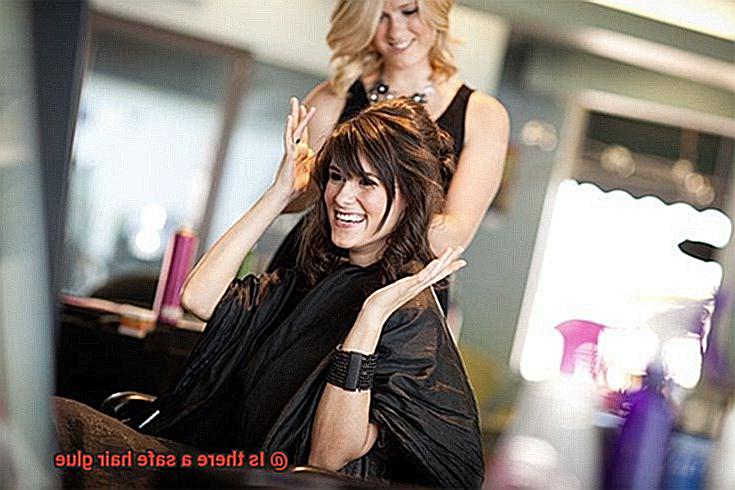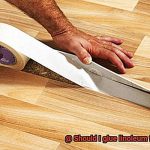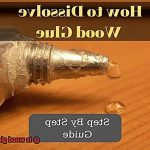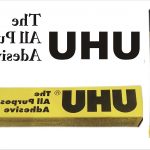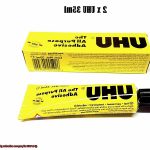Are you a fan of rocking fabulous hairstyles?
If so, chances are you’ve encountered hair glue along your style journey. Whether you’re into wigs, extensions, or just love experimenting with different looks, hair glue can be a total game-changer.
But here’s the catch: some hair glues have been linked to hair damage and scalp issues. Yikes.
So, before you dive headfirst into the adhesive hairstyle world, it’s crucial to consider safety first. In this blog post, we’ll tackle the burning question: is there such a thing as safe hair glue?
If you’re eager to learn the truth about safe hair glue options, stick around.
Potential Harmful Effects of Hair Glue
Contents
Picture a world where fabulous hairstyles are just a glue away. Hair glue, a common adhesive used in the beauty industry, promises to make your wildest hair dreams come true. But before you get carried away with visions of cascading locks, it’s essential to understand the potential harmful effects lurking within that seemingly innocent bottle. In this article, we will delve into the risks associated with hair glue and explore ways to protect your precious mane from its treacherous grip.
Toxic Chemical Cocktail:
- Brace yourself for a toxic cocktail of chemicals in hair glue, including formaldehyde, toluene, and methyl methacrylate.
- Formaldehyde, a notorious carcinogen, can unleash respiratory problems, skin irritation, and even cancer upon unsuspecting users.
- Toluene, another villainous ingredient, can wreak havoc with skin irritation, allergic reactions, neurological damage, and reproductive issues.
- Not to be outdone, methyl methacrylate can inflict skin irritation, allergies, and chemical burns when mishandled.
Scalp Siege:
- Prepare for an assault on your scalp as the chemicals in hair glue wage war on your precious skin.
- Dryness, itchiness, and inflammation are just a few battle scars that may surface as a result of prolonged contact with hair glue.
- Beware the dreaded scalp dermatitis or folliculitis that may arise as a consequence of this chemical onslaught.
Tresses Under Attack:
- Your luscious strands may fall victim to breakage and thinning if you dabble too heavily in the dark arts of hair glue.
- The potent adhesive properties weaken the very structure of your beloved tresses over time, potentially leading to permanent hair loss.
Allergic Ambush:
- Be on high alert for allergic reactions lying in wait for unsuspecting victims of hair glue.
- Redness, swelling, itching, and hives on the scalp are just a few signs that your body is mounting a fierce defense against this chemical invader.
Tips for Safe Passage:
- Embark on your hair glue journey with caution by conducting a patch test to detect any lurking allergies.
- Seek guidance from professionals on proper application and removal techniques to minimize potential damage.
- Exercise restraint and avoid excessive or prolonged use of hair glue to protect your hair’s integrity.
- Consider safer alternatives like clip-in extensions or sew-in weaves that spare your tresses from the clutches of hair glue.
Identifying the Ingredients in Hair Glue
It’s crucial to be well-informed about what you’re applying to your scalp, so let’s embark on a journey of discovery.
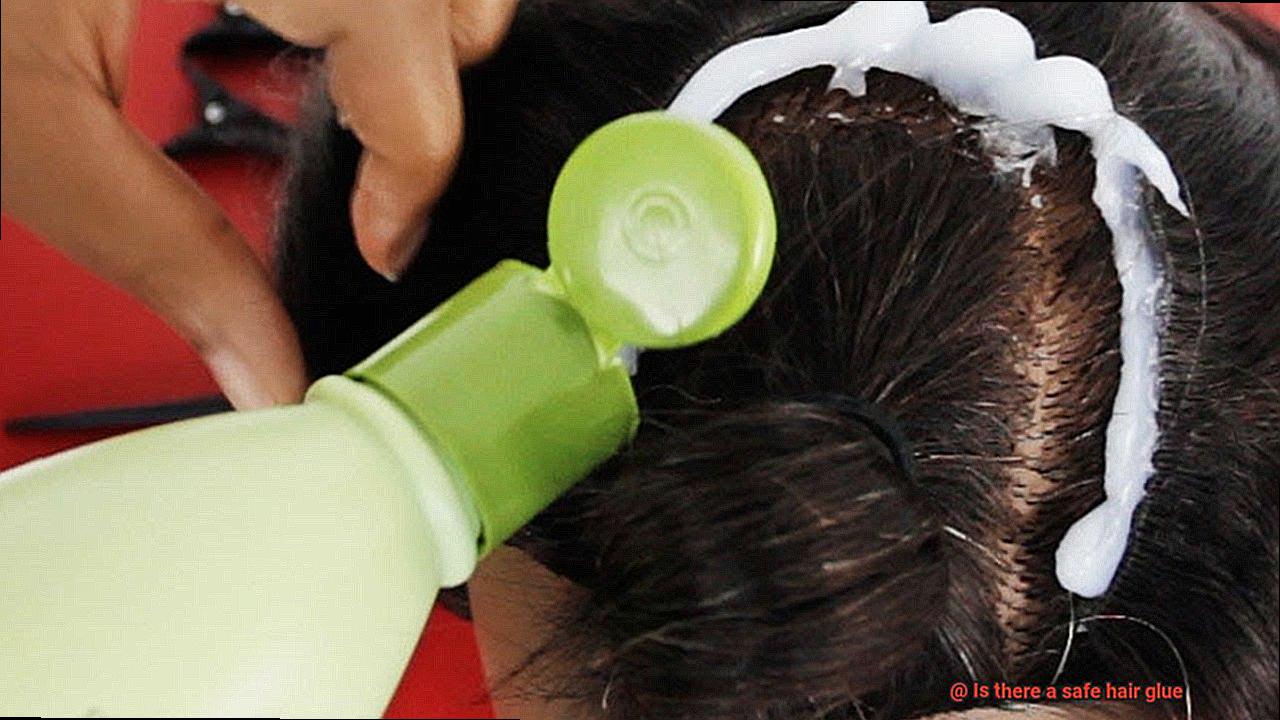
First and foremost, let’s unravel the mystery surrounding polyvinyl acetate (PVA). This synthetic polymer holds the key to the adhesive properties of hair glue. Acting as a potent bonding agent, it’s a common ingredient in various adhesives. However, it’s important to note that extended exposure to PVA may provoke skin irritation and allergic reactions in susceptible individuals. To avoid any unwelcome surprises, performing a patch test is imperative before using any hair glue containing PVA.
Next up on our expedition is acrylates copolymer. This enchanting ingredient enhances the adhesive properties of the product, ensuring a firm grip on your strands. Known for its rapid-drying nature, it’s perfect for those who are always pressed for time. However, like its counterpart PVA, acrylates copolymer can also instigate skin irritations and allergic reactions in certain individuals. Hence, the patch test becomes an indispensable ritual.
In addition to PVA and acrylates copolymer, hair glues may contain an array of captivating ingredients such as resins, solvents, and preservatives. Resins like vinyl acetate or epoxy resin are added to fortify the bond and increase durability. Solvents like ethanol or isopropyl alcohol ensure effortless application and swift drying. Preservatives are introduced to ward off bothersome bacteria. While these additional ingredients serve a purpose, they too have the potential to irritate your skin.
Remember, the precise composition of hair glue can vary between brands and products. It is vital to peruse the ingredient list provided on the packaging before indulging in any hair glue adventures. If you have known allergies or sensitivities, it is advisable to consult a dermatologist or perform a patch test on a small area of your skin before immersing your scalp in the glue.
Finding Safe Hair Glue Options
Today, we’ll explore the world of safe hair glue options and how to choose the best one for your needs.
Ingredient Awareness:
When it comes to hair glue, it’s crucial to carefully examine the ingredient list. Keep an eye out for toxic chemicals like formaldehyde, which can be harmful if inhaled or absorbed through the skin. Instead, opt for glues labeled as “non-toxic” or “safe for skin.” These options are typically formulated with gentler ingredients that won’t wreak havoc on your hair or scalp.
Natural and Organic Alternatives:
For an even safer option, consider exploring natural or organic hair glues. These products are often made with plant-based ingredients that are kinder to your locks and won’t cause unnecessary damage.
Application Methods:
Some glues require heat or solvents to activate, which can be more damaging to your hair. Look for glues that can be applied without the need for additional heat or chemicals. Your hair will thank you.
Customer Reviews and Recommendations:
Before making a purchase, it’s wise to read customer reviews and feedback from people with similar hair types and concerns. This will give you insight into how well a particular glue works and if it caused any adverse reactions.
Professional Guidance:
If you’re still unsure which hair glue to choose, don’t hesitate to consult with a professional hairstylist or trichologist. They possess the expertise and experience to guide you towards a safe and effective option tailored to your specific needs.
Remember:
Always follow the instructions provided by the manufacturer when using hair glue. Applying too much glue or leaving it on for too long can lead to damage or skin irritation. So, take it easy and adhere to the guidelines.
Benefits of Water-Based Hair Glues
Water-based hair glues are a game-changer for those seeking safe and fabulous hairstyling. These magical formulas offer a plethora of benefits that will leave your locks looking fabulous and your scalp feeling happy. Let’s dive into the wonderful world of water-based hair glues and explore why they are the ultimate choice for all your styling needs.
First and foremost, water-based hair glues are like a gentle breeze on your scalp. Unlike traditional adhesive glues that contain irritating chemicals, water-based glues are formulated with milder ingredients that won’t cause any unwanted itchiness or redness. Say goodbye to scratching your head like a confused chimpanzee and hello to a comfortable and irritation-free styling experience.
But wait, there’s more. Applying and removing water-based hair glues is a breeze. These glues come in liquid or gel form, making them super easy to spread evenly across your hairline or desired area. Plus, they dry quickly, so you won’t be stuck waiting for ages before you can flaunt your fabulous new ‘do. And when it’s time to bid farewell to your stylish creation, water-based glues can be easily washed out with water or a gentle cleanser. No more wrestling with stubborn glue residue or damaging your precious tresses in the process.
Speaking of damage, water-based hair glues are like superheroes for your hair. Traditional adhesive glues can wreak havoc on your strands, causing breakage and weakening the overall health of your hair. But fear not. Water-based glues are formulated with ingredients that are less likely to cause damage. So, you can enjoy long-lasting styles without compromising the health and integrity of your natural hair. It’s a win-win situation.
Now let’s talk about versatility. Water-based hair glues are like chameleons for your locks. They can be used for a wide range of hairstyles, from wigs and weaves to braids and intricate updos. These glues provide a strong hold that keeps your hairstyles in place throughout the day, no matter what activities you have planned. So, whether you’re hitting the gym or attending a fancy outdoor event, your hair will stay on point.
And last but certainly not least, water-based hair glues are like a refreshing drink for your scalp and strands. Unlike some traditional adhesive glues that can dry out your scalp and hair, water-based glues often have hydrating properties. They help maintain the moisture balance of your scalp, preventing dryness and flakiness. Plus, they create a protective barrier between your hair and external elements like heat or humidity, helping to retain moisture and reduce frizz. So, say hello to hydrated and happy hair.
Safety Tips for Applying and Removing Hair Glue
However, it’s crucial to prioritize safety when applying and removing hair glue. These seemingly harmless products can contain harsh chemicals that may irritate your scalp and skin. To ensure a worry-free experience, let’s explore some essential safety tips.
Perform a Patch Test – A Must-Do.
Before diving into a full application of hair glue, always perform a patch test. Apply a tiny amount of glue on a small area of your scalp and wait for 24 hours. If you experience itching, redness, or swelling, halt the process immediately. Your skin might be sensitive to the glue.
Ventilate for Fresh Air.
When applying hair glue, make sure you’re in a well-ventilated space. Open those windows wide or turn on a fan to ensure proper air circulation. By doing so, you minimize the risk of inhaling fumes that could irritate your respiratory system.
Protect Your Precious Skin.
Hair glue should only touch your scalp and hairline, so be cautious not to get it on your skin. This can cause irritation or allergic reactions. Before applying the glue, apply a thin layer of petroleum jelly or barrier cream around your hairline to protect your skin from direct contact.
Follow the Instructions – Stay Safe.
It’s crucial to read and follow the instructions provided by the manufacturer of the hair glue. Different brands may have specific application methods and recommended drying times. By adhering to these instructions, you ensure safe and effective use of the product.
Avoid Heat Overload.
While using hair glue, steer clear of excessive heat from styling tools like flat irons or curling irons. High temperatures can weaken the adhesive properties of the glue, leading to loose extensions or wigs. Keep it cool and stylish to maintain a long-lasting hold.
Gentle Removal – Handle with Care.
When it’s time to bid adieu to your hair glue, approach the removal process gently. Applying a generous amount of adhesive remover or oil-based product will help soften the glue. Then, with a gentle touch, comb through your hair to remove any residue. Avoid any forceful pulling or tugging, as this can result in breakage or hair loss.
Moisturize and Cleanse – Show Your Hair Some Love.
After removing the hair glue, pamper your scalp and hair with some tender care. Use a gentle shampoo to cleanse away any remaining residue, and follow up with a deep conditioning treatment to nourish and hydrate your precious tresses. Show them some love.
Take Breaks – Let Your Hair Breathe.
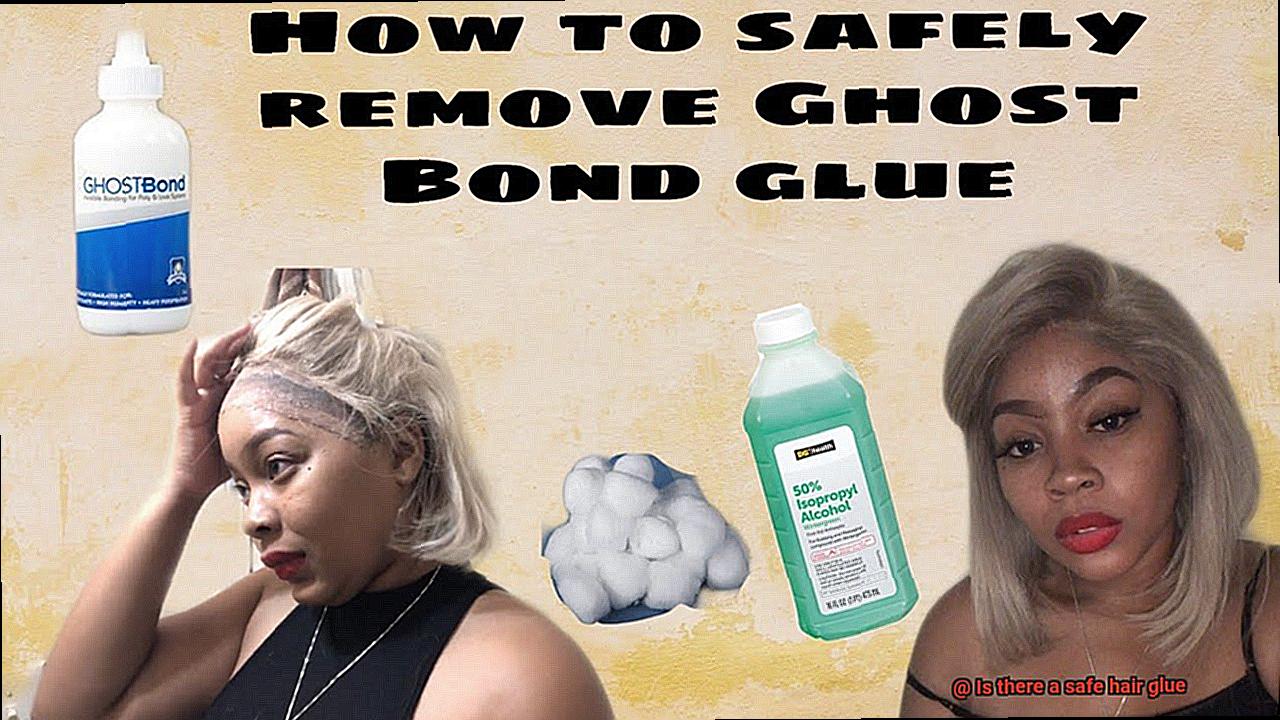
Continuous use of hair glue can strain your natural hair and scalp. Give them a break between applications to allow for rest and recovery. Think of it as a mini vacation for your hair.
Professional Help for Finding the Right Product
Luckily, there’s a secret weapon you can employ – professional help. In this article, we will explore the invaluable role that seeking professional assistance plays in finding the ideal hair glue for your needs. So, sit back, relax, and delve into the world of hair glue expertise.
Expert Knowledge for Optimal Results:
- Extensive Training: Hairstylists and cosmetologists undergo rigorous training to understand different hair types, textures, and styles. Their expertise enables them to assess your specific needs and recommend the most suitable hair glue for you.
- Inside Scoop on Products: Professionals are well-versed in the market’s hair glue options. With access to a wide range of products, they provide valuable insights into which ones are safe and effective.
- Safety First: Professionals prioritize your safety. They guide you through patch tests to check for allergic reactions and ensure you’re in a well-ventilated space, avoiding harmful fumes.
Access to High-Quality Products:
- Trusted Brands: Professionals have established relationships with reputable suppliers, granting them access to high-quality brands not easily available to the general public. Trust their recommendations as they’ve been tested and endorsed by industry experts.
- Minimize Risks: By using reliable products recommended by professionals, you minimize the risk of damage to your natural hair or scalp – priceless peace of mind.
Personalized Advice:
- Tailored Recommendations: Hair professionals take into account your unique circumstances, such as your hair type, lifestyle, and desired hairstyle. This personalized approach ensures you find the hair glue that meets your specific needs.
- Minimize Side Effects: Professionals suggest alternatives if a particular hair glue may not be suitable for you. Their expertise minimizes potential risks or side effects.
Alternatives to Using Hair Glue
Discover the world of hair styling alternatives that will keep your hair looking fabulous without the fear of damage caused by hair glue. We have done extensive research and compiled a list of safe and effective options to help you achieve your desired hairstyle while keeping your hair healthy and strong.
- Tape-in Extensions: Say goodbye to the damaging effects of hair glue with tape-in extensions. These extensions are a game-changer for those seeking a secure yet gentle option. The pre-applied adhesive tape attaches the extensions to your natural hair, providing a seamless blend. Removal is a breeze, with no damage to your hair or scalp. Enjoy a long-lasting hold without compromising the health of your hair.
- Clip-in Extensions: Versatility and convenience come together in clip-in extensions. These extensions come with small clips attached, allowing you to easily secure them onto your natural hair. No need for adhesive or glue, making them a safe option for those concerned about potential damage. Enjoy effortless application and removal, making it perfect for those who like to switch up their hairstyles frequently.
- Sew-in Extensions: Looking for a long-lasting solution? Sew-in extensions might be just what you need. Your natural hair is braided into cornrows, and then the extensions are sewn onto the braids using a needle and thread. This method is completely chemical-free and won’t cause any harm to your hair or scalp. Enjoy the freedom of various hairstyles without compromising the health of your natural hair.
- Temporary Bonding Adhesives: If you love experimenting with different looks on a regular basis, temporary bonding adhesives are a fantastic choice. These adhesives provide a secure hold for wigs or extensions without damaging your natural hair. They can be easily removed with water or a special solvent, allowing you to switch up your style whenever you desire.
While these alternatives offer safer options than using hair glue, it’s important to remember that proper care and maintenance are still necessary. Regular washing, conditioning, and avoiding excessive heat or chemical treatments will help maintain the health of your natural hair.
fLfTTt3Dw6g” >
Conclusion
In conclusion, prioritizing safety is crucial when it comes to hair glue. While some hair glues can wreak havoc on your hair and scalp, fear not, for there are indeed safe options available.
It’s imperative to be aware of the potential dangers lurking in certain hair glues. Ingredients like formaldehyde, toluene, and methyl methacrylate have been linked to a laundry list of problems including skin irritation, allergies, respiratory issues, and even cancer. To steer clear of these risks, meticulously inspect the ingredient list before using any hair glue and opt for non-toxic or skin-safe alternatives.
For those concerned about potential damage, natural and organic alternatives can come to the rescue. These products harness the power of plant-based ingredients that treat your locks with kindness and avoid unnecessary harm.
If you’re after a safe bet for hairstyling, water-based hair glues are where it’s at. They boast an array of benefits such as being gentle on the scalp, effortless application and removal, minimal hair damage, flexibility in styling choices, and even moisturizing properties.
When it comes down to applying and removing hair glue safely, follow these essential tips: conduct a patch test before going all-in; ensure proper airflow during application; shield your skin with petroleum jelly or barrier cream; read and adhere to manufacturer instructions diligently; keep heat styling in check; remove with care without yanking or pulling on your precious strands; finally, moisturize and cleanse your scalp post-removal.
Don’t hesitate to seek professional guidance in finding the perfect product for your unique needs. Hairstylists and cosmetologists possess invaluable expertise regarding various hair types and can offer personalized recommendations tailored just for you.
And if you’re looking for alternatives that bypass hair glue altogether? Fear not. Tape-in extensions, clip-in extensions sew-in extensions or temporary bonding adhesives provide safe options that allow you to rock stunning hairstyles without compromising the health of your natural hair.
Remember, your hair and scalp deserve the utmost care and attention.

